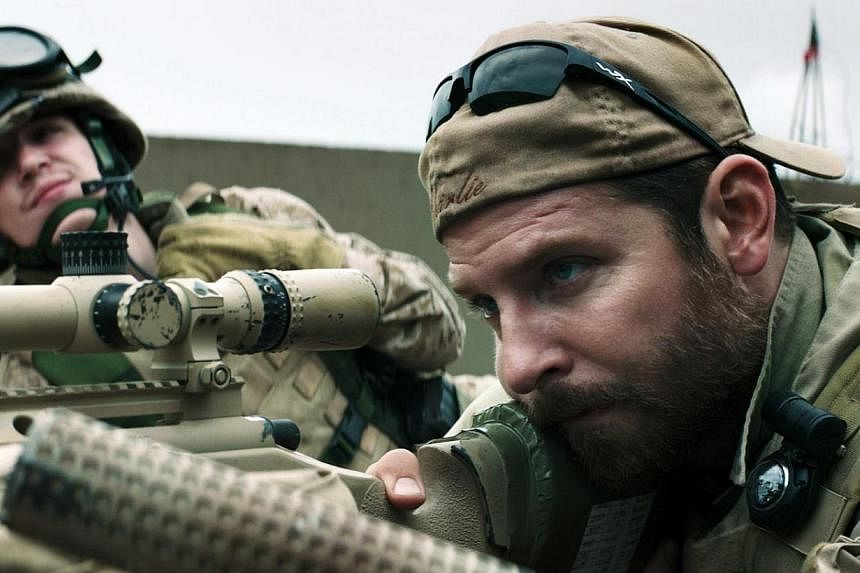Review Biopic
AMERICAN SNIPER (M18)
133 minutes/Opens tomorrow/**1/2
The story: Chris Kyle (Bradley Cooper), a member of the Navy Seal special operations team, is a sniper deployed in Iraq. There, his skills earn him the nickname "The Legend", given by the troops he protects as they patrol the streets. After serving four tours of duty, he is credited with 160 confirmed kills, making him the deadliest marksman in United States history. Based on Kyle's best-selling autobiography from 2012.
A small online war has broken out over this biopic of highly decorated sniper Chris Kyle.
One side takes issue with the film's lionisation of the American military and its operations in Iraq and how dismissively it treats the natives of that country.
The other celebrates this movie for the same reasons and since its opening in the United States last week, that sentiment has driven its box-office takings to record weekend highs for a January release.
Yes, it can be confirmed that loweffort, racist tropes make up the scenes featuring Iraqis and the movie does elevate Kyle into a man-myth because of his ability to kill with superhuman efficiency.
But it would be unfair to fault Sniper for these traits and not point to the same ideas found in countless other Hollywood products. The use of lazy, audiencepandering racial and cultural stereotypes is not much worse here than in, say, Michael Bay's Transformers series, or in Cooper's The Hangover comedies.
In fact, credit should be given to director Clint Eastwood for the courage to wear his politics on his sleeve, when others would try to water down Kyle's reportedly low opinion of Iraqis, as revealed in the book and in interviews.
Dehumanising an entire foreign population is a coping strategy; Kyle was not the first and will not be the last soldier to use it.
The film falls down in other areas, both small and large. Blood splashes as people are hit by bullets look laughably digital.
Tonally, it feels lumpen, the result of Eastwood's and screenwriter Jason Hall's steering clear of the complex, controversial and, thus, more interesting parts of Kyle's post-Iraq life, in favour of the God-fearing hero found in the book.
A sniper-versus-sniper sub-plot out of a cheesy 1990s action movie is shoehorned in to fulfil the action quota, which, in turn, is intercut with the inevitable and uninspired soldiering-versusmarital obligations spousal conflicts, with Sienna Miller playing Kyle's wife Taya.
Cooper and Miller do what they can, but the script's lack of courage lets them down.


